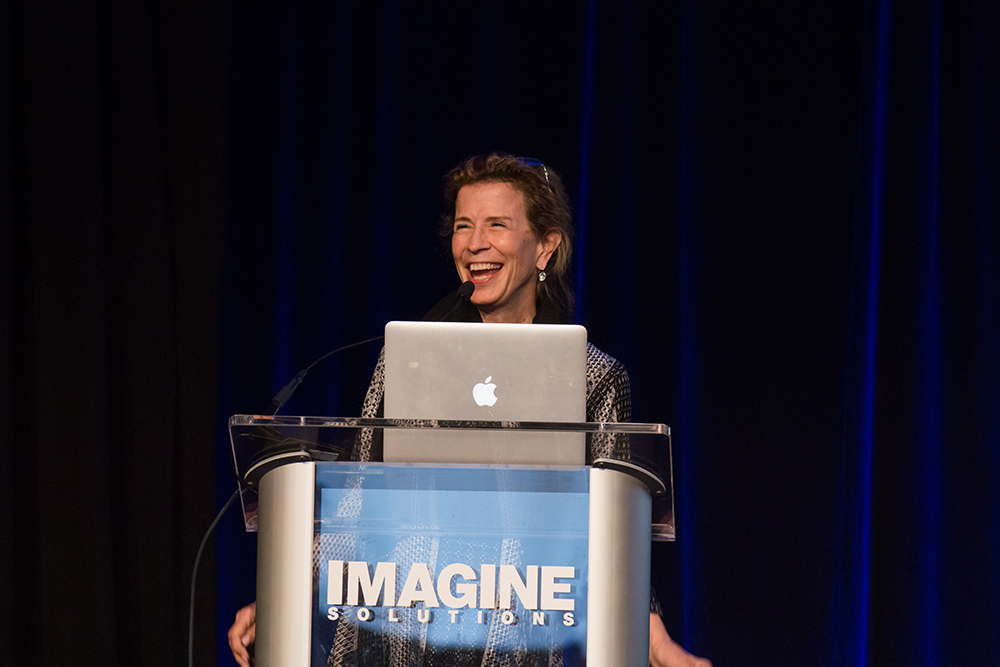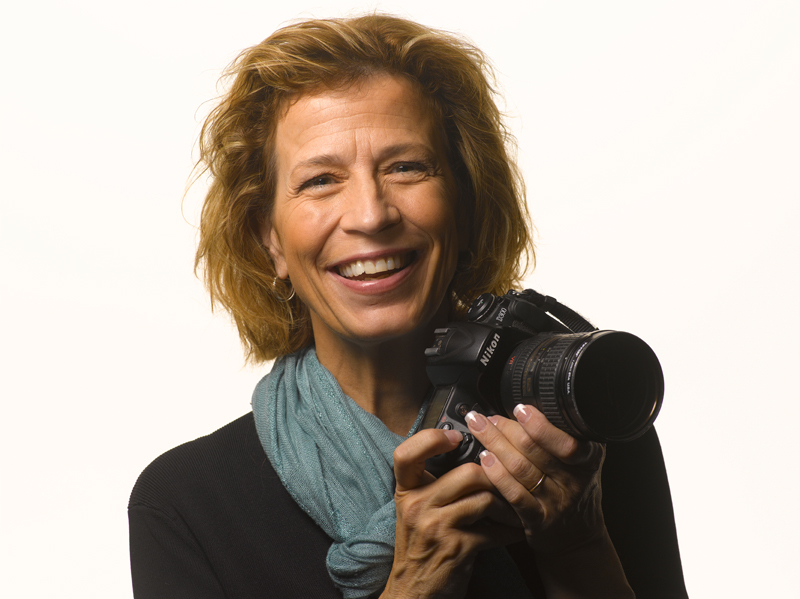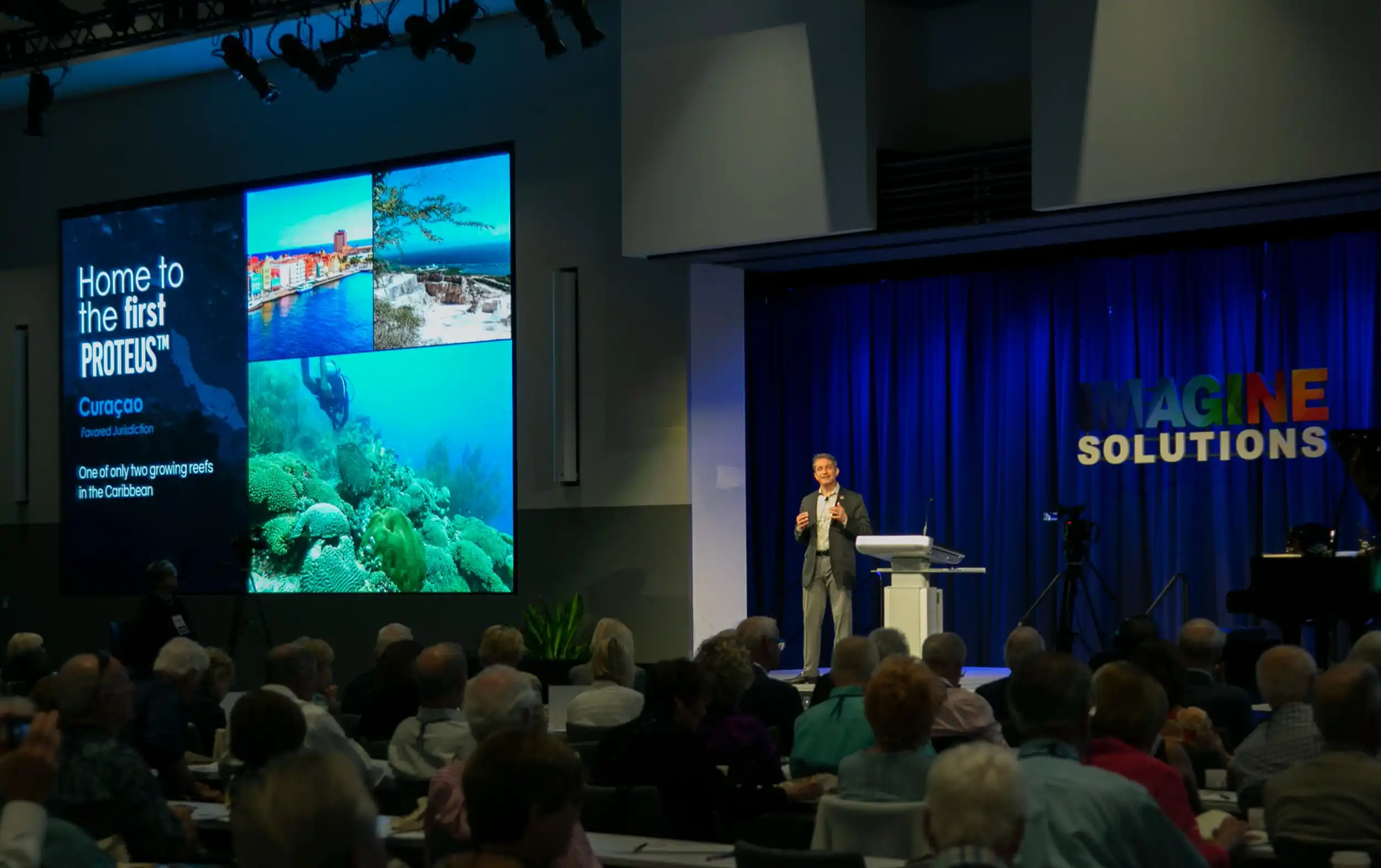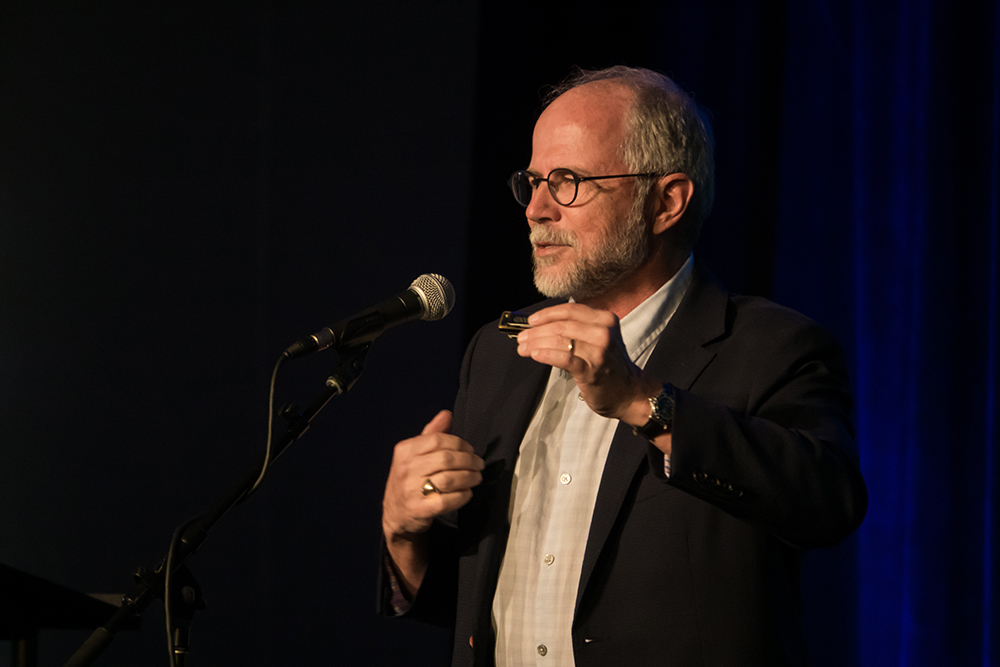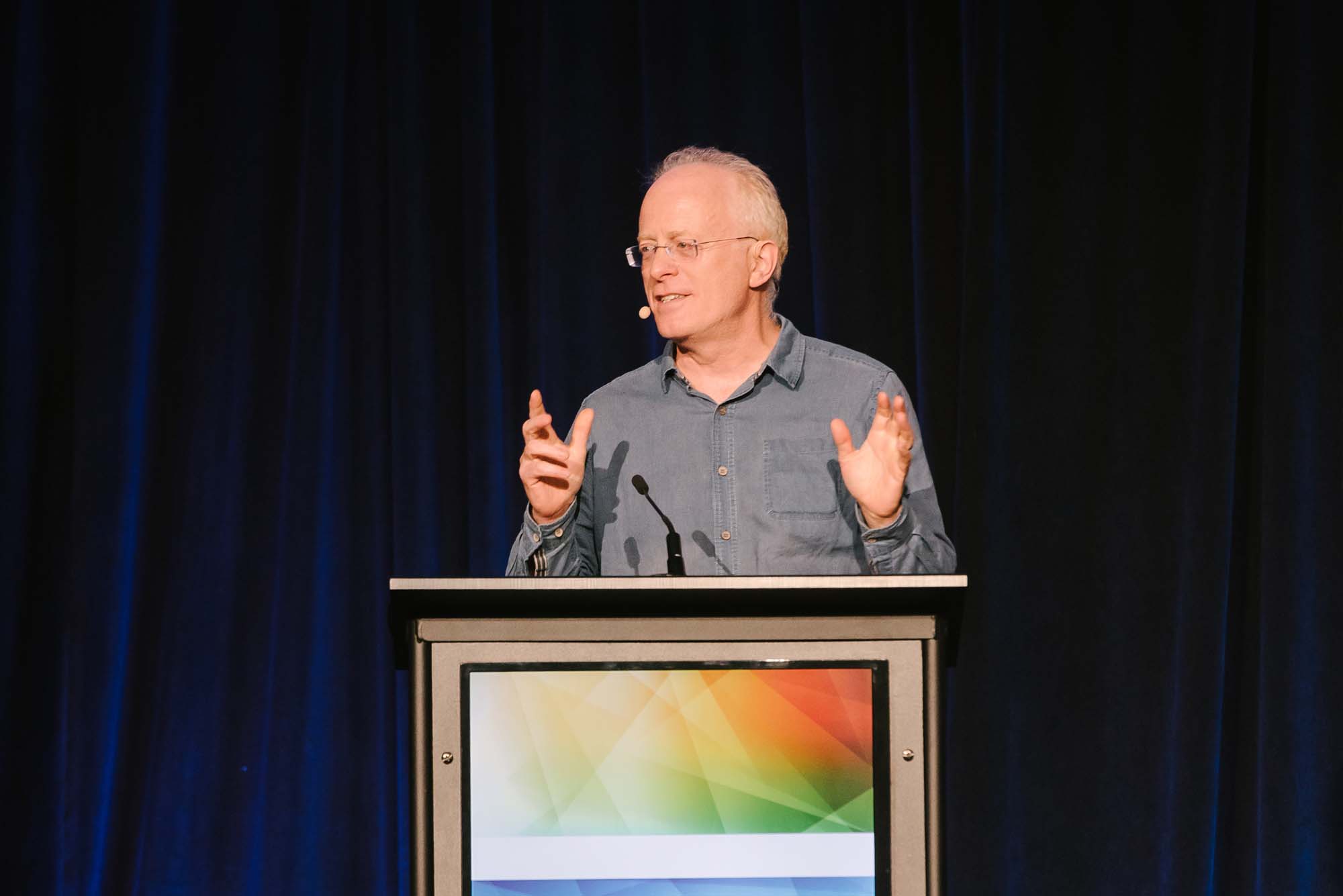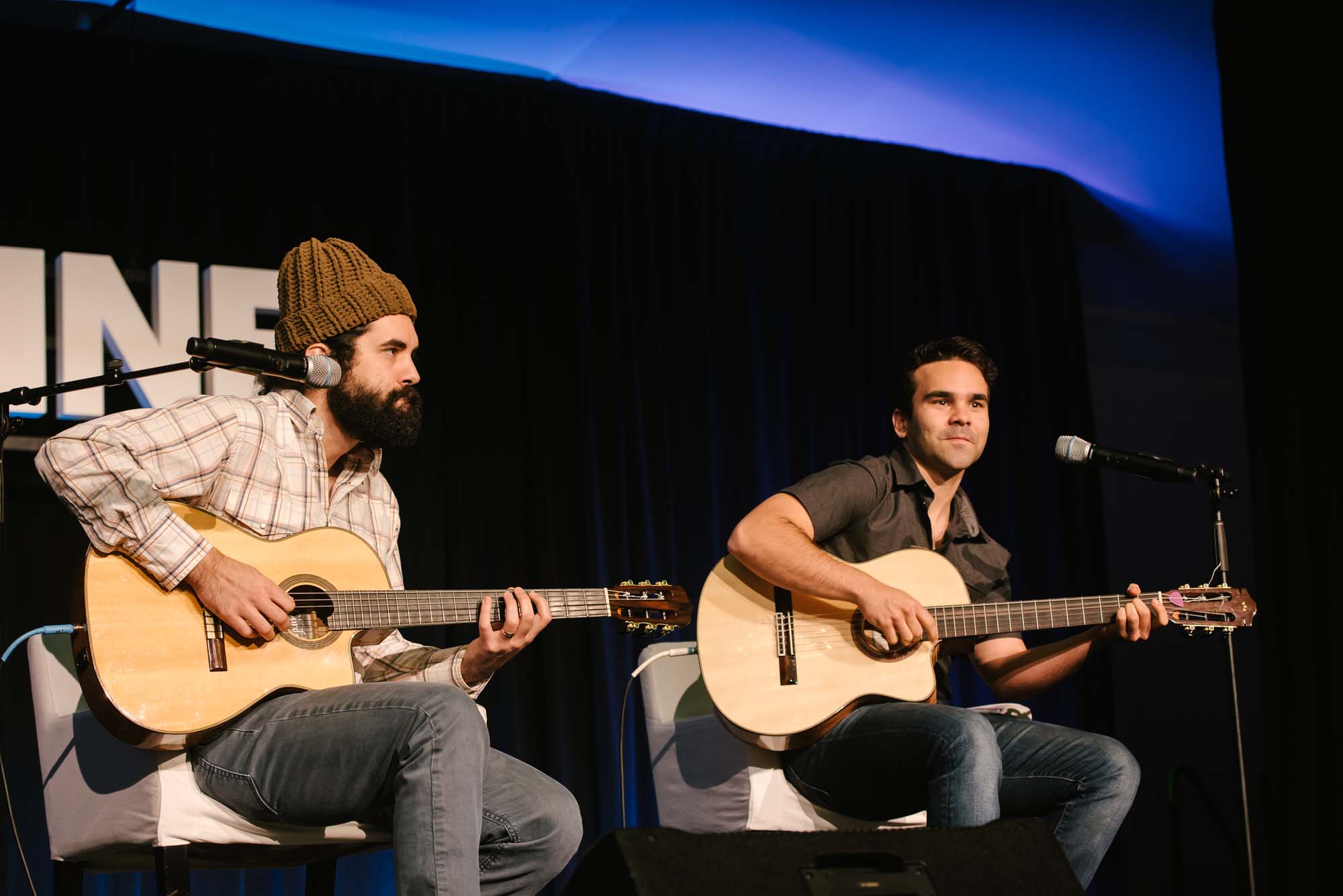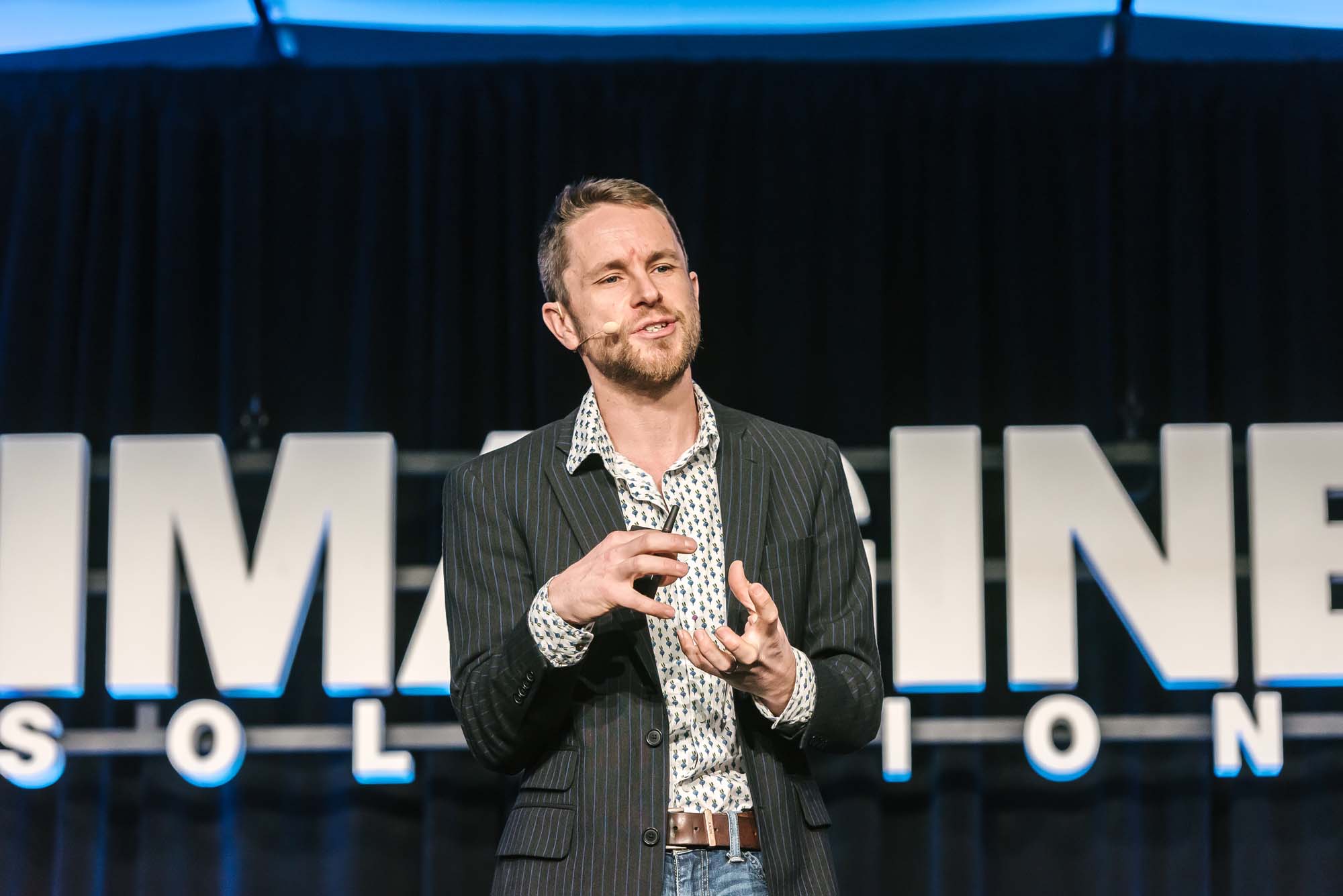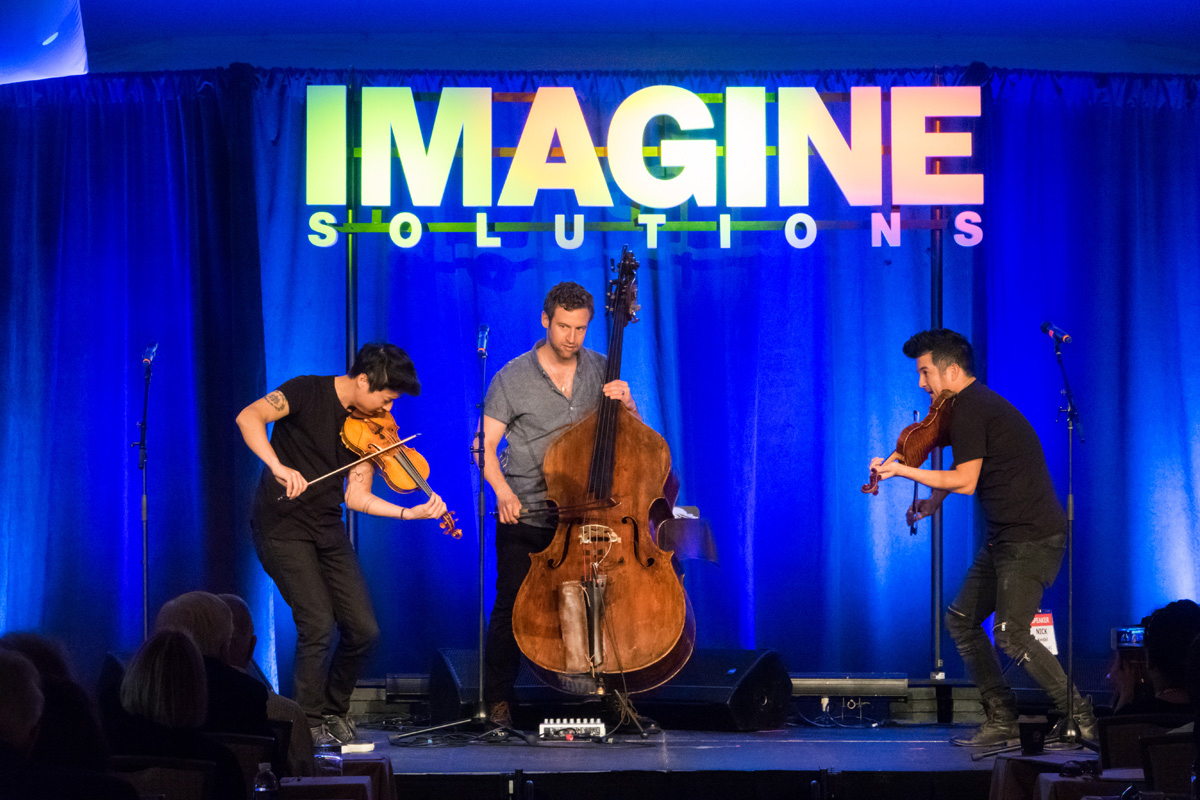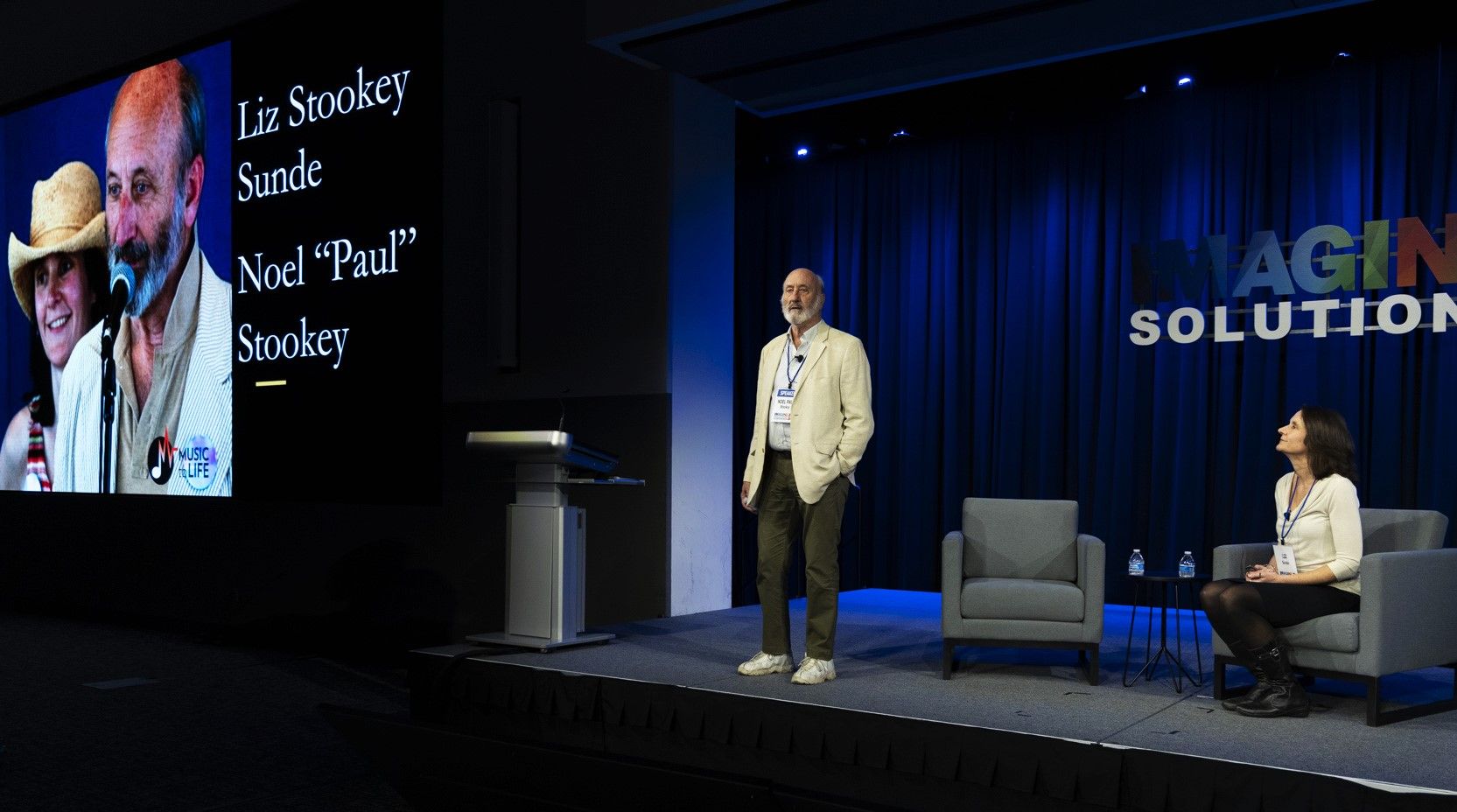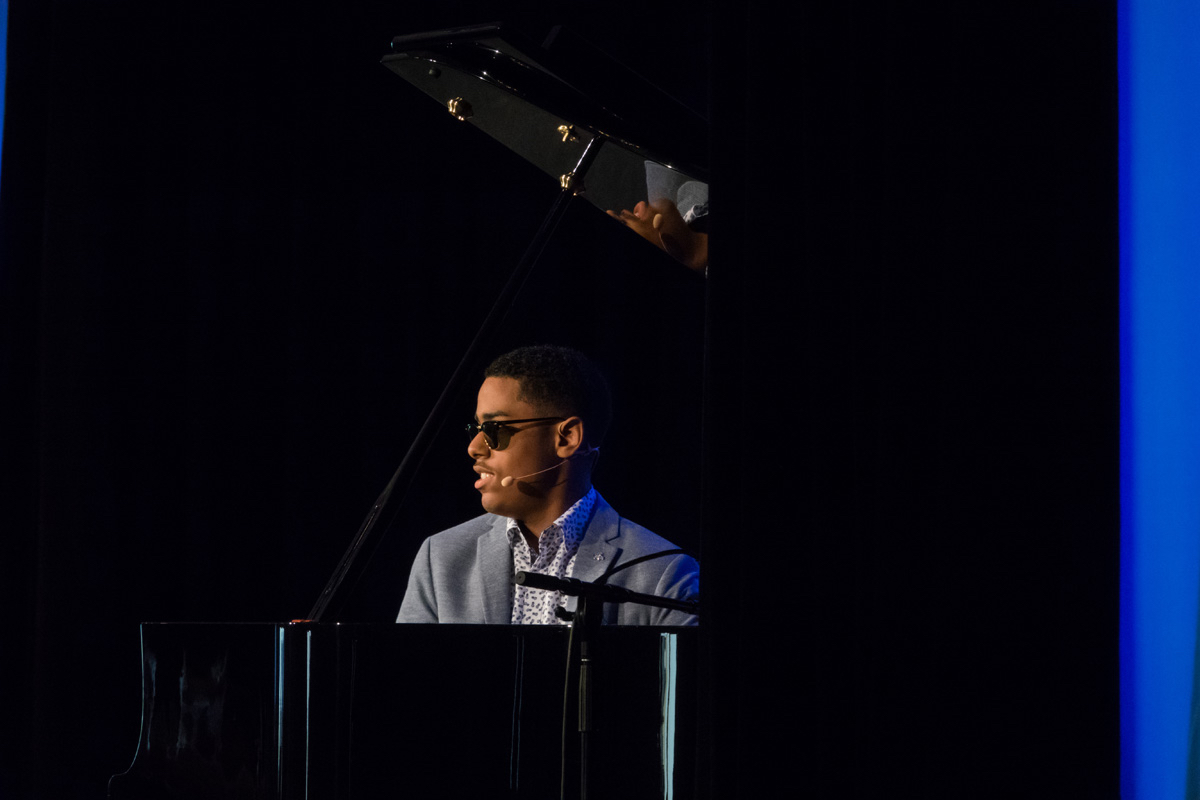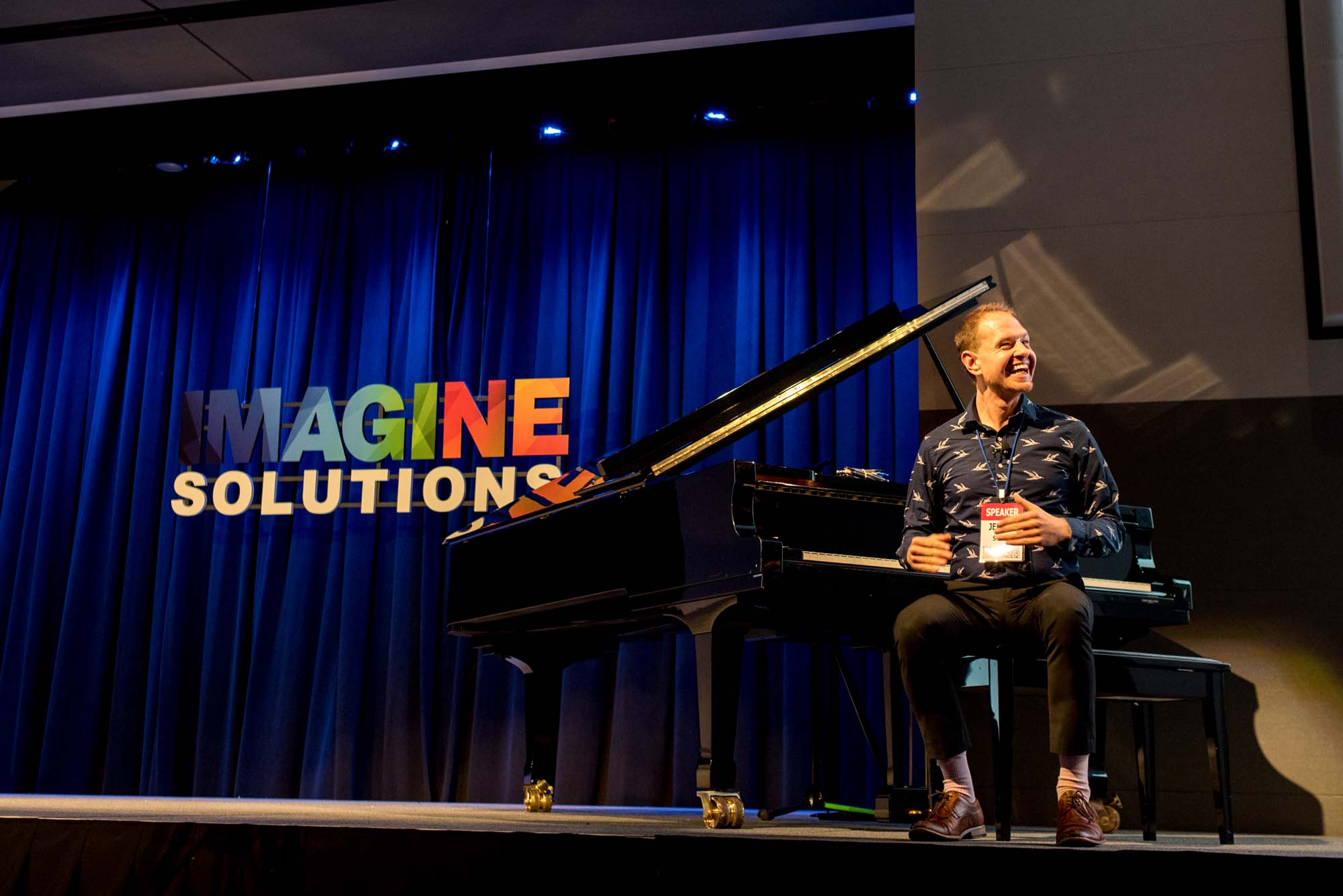Raising Global Awareness through Photography
One of the first women photographers to work for National Geographic, Annie Griffiths shares stories of her career taking photographs in nearly 150 countries. Also deeply committed to raising awareness for international aid organizations, she founded Ripple Effect Images and describes her experiences documenting programs that are empowering women and girls throughout the developing world, especially as they deal with the devastating effects of climate change. Through her photos and her words, Ms. Griffiths illustrates her strongly held belief that the best investment we can make in our shared future is in women and girls, globally, who—with just a bit of encouragement—are changing the world.
00.00
seen Annie Griffiths creates beautiful photographs and she tells the important stories along the way she's one of the first women ever to photograph for National Geographic she's photographed in nearly a hundred and fifty countries during her long and storied career in addition to her magazine work though she deeply committed to photographing for aid organizations around the world and this is going to be one of the themes that she's going to talk about today she's the executive director of ripple effect images a collective of photographers who document the programs that are empowering women just like Vanessa's program did does women and girls throughout the developing world her work has appeared in life geo Smithsonian fortune Stern and many other publications and welcome to our anchorwoman Annie Griffith [Music]
01.01
it's a sign oh and thank you for staying I know it's been a long day and I'm honored to wrap things up with the work of my life you won't believe it but Vanessa and I literally just met before she went on and I like it will seem like I paid her to set up this talk for me because everything that Vanessa said is part of the work that I've observed for my nonprofit which is called ripple effect images and then she said ripple affected like 10 times so but I have had an extraordinary career so very lucky and one of the unintended consequences of being one of the first women photographers at National Geographic was that there were so many underreported or
02.00
unreported stories about women and girls and so I thought as an enormous opportunity and I love the title of this conference imagine solutions because I think we have a solution I think we have the best solution the best investment the world can make in our shared future and that investment is in women and girls globally I just I've been lucky enough to work in 150 countries and I've seen it over and over again exactly what vanessa was talking about that if you if you take it to the girls in small areas enlarge and you give them just a little bit of encouragement or empowerment they change the world and they go around problems and they work together so I'm going to first start introducing you to my inspiration this is my mom and my mom
03.01
this was taken by my dad on their first date but my mom was you know Midwestern Catholic suburban like such a good girl such a nice girl but and she had a lot of obstacles in the First World way that we see obstacles but she knew how to go around them and one of the one of the things that mom did that'll give you an example of how she she goes around a problem she was born the day the charles lindbergh flew the atlantic and she always was fascinated with flight and so she wanted to be a flight attendant and this was back in the olden days when there were a few rules and mom was as blind as I am and as all the girls of my family aren't so they took one look at her and said no I really don't even need to apply because you know you got glasses and I mean imagine the safety
04.00
risk in turbulence they could go flying off your hit your face and so my mom said okay well thank you very much and she became a pilot so that you know her competence and her ability to just go oops well let's see now what shall I do I've seen echoed all over the world an example of that I was doing a story on Jerusalem for the magazine and it's really hard for a journalist to work in in Israel because there are so many rules religious rules political rules just security rules and this is a picture of between two and three hundred thousand muslims praying around the dome of the rock and facing a laksa musk which is the second holiest place in in Islam it was shot from a helicopter the only way I got permission that all this grew up with an army helicopter and
05.00
shoot from 3,000 feet up but it was kind of a blessing but what I really wanted is that I knew on the lab this was the last Friday of Ramadan and on the next morning the women gather inside the dome of the rock to welcome the end of the fast as a sunrise through the window and that's the end of the fact so I asked everybody in their mother-in-law for permission and nobody was pledging on it and so finally I you know the last day I went to the home of the Grand Mufti and I went to his home and he was busy seeing important men and but I heard voices in the kitchen so I wandered in and his wife and his daughters were making dinner and so I just fit right in and chopped salad and helped him make dinner and they were delightful and educated and wonderful and and they invited me to dinner noce and that you know and then the rest of the family came in and we sat down had this absolutely delightful dinner and I
06.00
waited until the end of the meal and then I turned to the musty and I said may I please have your permission to be with the women as they welcome the end of the fast tomorrow at the Dome and he said no no you can't now it sounds like it was my last chance I went back to my apartment feeling really discouraged about five o'clock in the morning there was this little knock at my apartment door and I opened it and there was a young woman and she said dress modestly and bring one camera because the Grand Mufti said no but his wife said yes and you know it was once you're in you're in so much of trying to tell an important story is getting to the truth getting to the place and it was just beautiful once I was then I just kind of snuggled down with all the girls and waited for this picture which is the moment the Sun rose and came through the window to end and the fast it's it's you know is part of
07.04
this extraordinary privilege I've had of being with women in all these different countries and and what I've learned is that the Western world tends to pity them and we should be applauding them this is one of my early trips this is I was literally 25 years old I look like a bug and I'm with women who'd never seen a Caucasian woman before now they lived in a very remote part of Namibia and they were also living through seven years of drought and everybody in this room would have died but these women had unbelievable knowledge and resourcefulness and they were able to find enough to feed their kids enough to survive in this desert it is absolutely
08.04
beautiful and it's absolutely brutal it's called the skeleton coast for a reason and yet you know for a woman to face this and be able to find lunch moisture a life I learned so much on this early trip and as time went on I started working with aid organizations also in addition to my work for Geographic and time and again I saw that the key to turning a village around or at a state around or a country around where the women this is in Rwanda and I saw that if you disenfranchise fifty percent of your population you cannot possibly find great success this is in
09.00
Haiti and we we so Miss understand women and girls in the in the developing world and I've to a great extent I blame the media my own my own gang because increasingly we only here a couple of things about them one that you know that they're victims of conflict very important and then almost all the other coverage is about their sexual vulnerability and those things are important but that is not an accurate representation of who these women are so I I just decided I need to show how cool these women are how strong how funny how intelligent how resourceful they are and and that if we could just
10.01
invest in women and girls things would change so much faster the data shows that every aid dollar invested in a program for women and kids pays back at three times the rate of aid programs that are invested in men and boys and and yet two cents out of every American aid dollar goes to women and girls not just really bad math and I it was I was starting to get kind of angry and distressed and and then I realized well don't whine about it do something about it but there was a day when I almost quit and it was this day I was in a refugee camp and I've been in a lot of refugee camps this was a horrible refugee camp and I met this young somalia mother and she was just so lovely and kind and her baby was sick
11.02
and I I just thought she's never getting out here I had such a crisis of confidence i just went what am i doing and i think everybody in this room has probably felt that at different time so it's like so big it's so overwhelming it's where do you start but i took this picture and it was used by the aid organization to raise funding and two years later I was in a refugee coordinators office in Richmond Virginia and this was hanging on the wall and I said wow that looks familiar and meaning I've taken a picture and the refugee coordinator turned to me and says oh yeah and she's doing great her Hut you know she's working at Walmart or husband's working at Kentucky Fried Chicken the baby is fine and it was just as a pity of like don't ever ever give up I'm very clear that i did not get her out of the refugee camp I take pictures
12.01
I tell stories but if that if those pictures and those stories can help raise attention and funding for these vital programs than that what I want to do for the rest of my life so I called my girlfriends at National Geographic who were also doing aid work there was a core group of women who were just we so got it and they were so so talented but even more importantly such good humanitarians and I said we all know that women work together and that's how they get more done we're biologically programmed that way I said so how about if we photographers work together and they all said yes and we started ripple effect images and what we do is we identify success we identify solutions and I raise the funding to send a team in a videographer and a still photographer to document that success to
13.01
document those programs and Vanessa it was talking about one Gary Matai we documented her program in Kenya and then we provide the you know we make a film and access to those images to the aid organization and today in five years our aid partners have reported raising over 10 million dollars using those assets and so we focus thought I know isn't that cool it's the ripple effect and and here's what we focus on we focus on water because it's an incredible Crippler of poor women women and girls usually have to walk great distances to get really bad water in fact we covered a program where women and girls for walking 11 hours a day to get terrible water and once they were taught I mean they want to do the work they just need
14.00
a little engineering and a little cement and they'll do the rest and and they started building sand ants and a quarter the girls then got to go to school this is in Cambodia and these these kids are just like my kids you know they this is the first time they've seen water come out of the water out of the ground fresh water and so of course they just jumped in and had fun and another thing that we don't think about with water is if you're you're a mule who hauls water from great distances so that you can keep your kids alive you would never use that water to bathe and think what that means to a woman to feel that she's never even cleaned so helping solve those water problems helping involve local women in managing those solutions leads to an incredible morale boost an
15.01
incredible self esteem for them and then they always go on to do something else always they're unstoppable most people don't realize that women in some in some regions are ninety percent of the field labourers a lot of times they can't even own the land and they are very limited on being able to market their products so a middleman comes in and takes their product and pays them very little and they don't have any ownership and programs that educate women farmers and really help them understand especially in a changing climate what to feed your animals what to you know how to see if they're growing properly that it's healthier for your kids if you plant
16.00
beans and vegetables instead of just one monoculture of rice or corn you tell women that and they will do it we're talking about their kids and health you know we had a wonderful presentation earlier today about about health and the the remote communities that are often cut off from any health information some of the most effective programs I've seen are simply we're locally trained health workers go and they already have the trust of their of women from their culture and they bring them information and if they're trained even further they can bring the penicillin they can they can bring the medicine for the tuberculosis they they will be trusted and they will become not only entrepreneurs in their regions but
17.00
they will also become leaders trusted leaders and one of the basic things that I have learned about cultures that don't value women at times including our own is that if you want a culture to value women you show how valuable they are it's really really the only way to change hearts and minds this is in a very remote part of Vietnam these women didn't know what a germ was nobody had ever told them that if they could wash their babies faces on hand and keep them clean they'd have far less illness and far less of death and i love the intensity of these women once they've learned something how they just they're so focused on doing it the most underreported story I have ever come across in my life is the number one killer of women and of kids under five
18.01
in the developing world and sadly I'm guessing a lot of you don't know what it is it kills more more people than malaria aids and tuberculosis combined and it's household air pollution and these are World Health Organization numbers and one of the saddest things is first of all people don't know because I really do believe if people know they actually they really care and they get involved but it's preventable it's completely prevent a bowl if we can focus on it as a global health disaster now i'm sure some of you have heard about that cookstove issue that's part of it and an important part of it but it is a global health disaster that's going to require the medical community the nonprofit community the government and the environmental community to push hard to change this
19.01
because the solutions are we have them it's just a matter of scaling them here's a clean cookstove this woman is clean her kids are clean it uses one-tenth the amount of fuel that her previous stove did and it's one of the solutions I was in India covering the salt workers and it takes an unbelievable toll on their little bodies and most of them are young girls who do this work and and it's really brutal and they're out in the hot Sun all day long but at the end of the day this little girl had a solar Lantern I hadn't seen it but she went over to get it and I started talking to her about oh that's great you can solar Lantern you know that it would you know we really underestimate what that means in the lives of families who have to live by the Sun or they have toxic kerosene
20.04
lamps or candles 300,000 people die every year because of household fires in the developing world caused by these these unhealthy cooking things but the thing that's going to get her out of the salt mines is this Lantern because she told me that she she charged it all day so that she could go to school at night and I did some research in 70,000 children in her region are now going to school because of solar lanterns and that that is the ticket out education and equity and education is the impact is incredible girls who get a secondary education marry an average of four years later they have three fewer children they can find
21.01
productive work they're less likely to put up with abuse and their children will go to school it's the ripple effect and boy do they want it in fact my kids would get my kids would cringe when I come home from these it truth he's like what do you mean you don't want to do your homework do you know how lucky right but it's everywhere and it is happening literacy is up it works these programs work we just have to be sure to commit to them this is a very traditional Bedouin family but the girls go to school so they had this little iPad I couldn't believe it Bolivia it's everywhere this woman is the poorest woman I ever met in my life and I say that because she had lost seven children to malnutrition it just doesn't get worse than that and she got a little
22.03
micro finance loan 25 bucks and with that she started a little food business by the side of the road and she was getting it kind of coming along she was doing pretty well and then she saw a two year old little girl girl on the right walking down the road naked and orphaned and so she took her in and she was worried a bit the baby needed milk so she took some of her savings and bought a goat to get goat's milk and then she started breeding the goat so then she had two businesses she had the food by the side of the road and she had her little goat business and she saved enough to send her her daughter to school that was her first priority and so this little girl was now going to school and getting her education and I was about to leave I had spent some lovely time with him and I was about to leave and the little girl ran up to me and she asked if she could see
23.00
my notebook and pen and so I handed them to her and she brought them over to her mom to show me that she had taught her mother to read and write that's the ripple effect and women who haven't had the extraordinary privilege of an education can still be taught to do great thing is it doesn't mean they're not smart they're just unlucky so this woman has just finished building 50 solar lanterns she comes from a village where there's never been any artificial light and he's taking her final exam they give her a broken one and they see if she can figure out what's wrong with it and fix it and if she passes the exam she gets to take all 50 lanterns back to her village along with the parts to build 50 more by women now watch she passed she paused but look at her body language when she goes back to her
24.00
village with the lanterns I mean look at that pride and that hope and that belief in herself and then look at the girlfriends they all look out a bottle of light you know it's uh it's so possible it's so possible this woman had never had a day of education but she was trained to run a solar desalination plant she's now a hero not just in her home but in her entire community I'm going to finish in Pakistan where I had a beautiful experience and I had these experiences regularly and I but I met I'm always blown away I went to a very very remote area excuse me first I'm sorry I'm ahead of myself women farmers
25.01
are now being brought into cooperative units and instead of having a middleman they they bring their crops in this is so cool and another so this is the farmer in the flowered sorry and on the left is the woman who runs the coop and she's people women have been sorting her cropped and weighing it and so she's watching to see how much it weighed and what the vet what the cost was okay then meanwhile out back is the commodities broker and she's on her cell phone remember earlier today we heard about self more people have cell phones than have clean water they are a vital part of communities lifting themselves especially women so she calls down to the market finds out what the going cost of that crop is under sells it by a couple rupees comes back in and what these women will never
26.02
go back they have been empowered and that's what I believe is going to change the world so I'm sorry now we are in Pakistan but we're in the middle of nowhere miles from any road and we ended up in this little village and we knew we were going to sleep in the desert that night we didn't know where but they realized it too and they asked if we'd like to stay in their village and this is what their village looks like and we said thank you very much and with that they brought us soup and they brought out there to guess cops and their best blankets and they put the cops in the middle of the little hut and we ate our soup in our cots with all the kids on the cops with us watching every site and at one point one of the women asked if we would like music because it was getting late and they all we all needed to go to sleep and we said we would love
27.01
music and with that five or six elderly men made a little circle around our cots and played until we fell asleep and I promise you none of these people had ever heard of National Geographic it and it confirmed what my mother taught me from the time I was a little kid that people who have nothing give everything and I just believe that we who have everything have to give back thank you very much [Applause]

